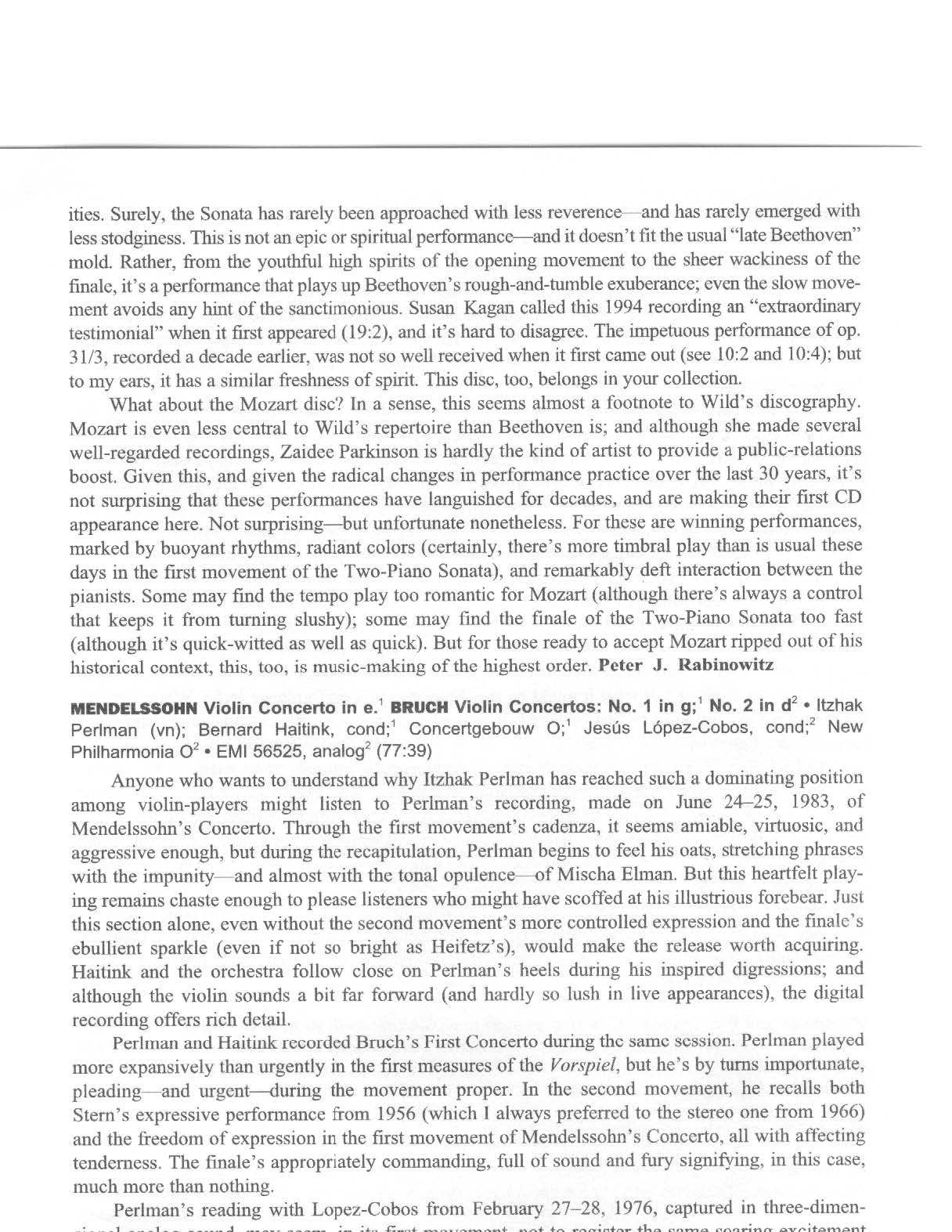Ivory Classics Music
Earl Wild: Forgotten Melodies - Nikolai Medtner
Earl Wild: Forgotten Melodies - Nikolai Medtner
Couldn't load pickup availability
Experience Nikolai Medtner's masterful blend of tenderness, intensity, and passion with Earl Wild's selection of captivating and often forgotten melodies. Played on a grand piano, this cd is sure to provide hours of enjoyment and indulgence.
Ivory Classics CD-75003
Earl Wild: Forgotten Melodies
Nikolai Medtner (1880-1951)
Piano: Earl Wild
Producer: Michael Rolland Davis
Engineer: Ed Thompson
Piano Technician: Andrei Svetlichny
Total Time: 66:40
Recorded February 1988 at Fernleaf Abbey in Columbus, Ohio
20-bit State-of-the-Art Original recording.
Remastered at 24-bit using the SADiE Artemis
High-Resolution digital workstation.
Piano: Baldwin
Liner Notes: Christopher Weiss
Front & Back Cover Photograph: © Niebrugge / wildnatureimages.com
Design: Samskara, Inc.
Like Sergei Rachmaninov and Alexander Scriabin, Nikolai Medtner was one of the last great composers/pianists of the Romantic period and, like his Russian peers, he found the piano to be the center of his creative focus and compositional output. His music shows a broad understanding of the piano's capabilities as a most communicative instrument. This disc is strongly recommended as an excellent introduction to Medtner's piano music.
Disc.Reviews
It's twenty years since Earl Wild set down these recordings of a composer not perhaps much associated with him – though surely a Rachmaninovian of such distinction should enjoy similar stylistic assurance in a composer Rachmaninov esteemed higher than any of his contemporaries. It was originally issued on Chesky and reissued on that label AD1. in the late 1990s.
Wild brings a lexicon of pianistic skill and sensitivity to bear on these works. In the case of the Sonate-Idylle he also brings his accustomed sensitivity and leonine power. He's been accorded a rather cavernous acoustic, to which I happen to be antipathetic, but there's not much to be done about it now, and remastering can't ameliorate the problem. It does at least confer a slightly distant, halo effect to the music making. Compared to a contemporary klaviertiger such as Hamelin we find that Wild is altogether more straightforward and linear in his approach. Hamelin's rubati are distinctive but somewhat invasive in the opening Pastorale, though the clear, detailed sound is a definite plus for those who prefer greater clarity and texture. I do prefer the greater warmth Wild brings to the second of the two movements; he stresses the wholesomeness and nobility of the writing and despite the swimmy acoustic I find that his refusal to fuss over details – as Hamelin can and does – pays rich dividends.
The charming portraits enshrined in the Second Improvisation reveal Wild the colourist and painterly wit, almost as much as they do the composer. The bell chimes are subtly evoked in Meditation where luminous voicings course throughout the brief span, whereas the sturdy march of Fancies contrasts nicely with the dynamism and fervour of The Tumult of the Crowd. The Orthodox Church saturates Incantation – very Mussorgskian and grand - and there's ferment in Bad Weather. All these miniatures are played with tremendous verve and assurance.
Finally, there is Vergessene Weisen (Forgotten Melodies) written c.1920. Rachmaninovian – maybe that should be Medtneresque - chordal power is unleashed in the first of them - the control of the ascents and descents of the music, and its wave-making incessant beauty is spellbindingly done. Wild takes a reflective line in the Romanza, much more so than Hamelin, though he never loses the spine of the music. The melodic lines of Primavera are brought out with rich succor. Hamelin is good here but he doesn't sing out as effusively as Wild and his rubati are more obviously explicit once again. Just the right sense of intimacy and warmth – all very naturally phrased – informs the Canzona. Both Geoffrey Tozer (Chandos) and Hamelin (Hyperion) take different points of view from Wild in the Sonata tragica. The former two see things more decisively and intensely whilst Wild is more content to stress the melancholia and is, therefore, slower and less explicitly exciting.
Throughout Wild proves a formidable champion of Medtner's music. True the recording is a handicap but the musicianship frequently convinces us of his identification with the caprice, the power, the legend, the introspection and the fancy of these pieces.
Jonathan Woolf, Music Web.com, May. 2008
I reviewed "Forgotten Melodies" in 1988 when it had just been just released by Chesky. Returning to it years later in this recent remastering for Ivory Classics by Michael Rolland Davis and Ed Thompson (who originally recorded it) I found myself unable to remember what I'd said in my earlier review. While it's good for a critic to start with a fresh slate and without preconceptions, I was equally incapable of recalling any of the melodies in the music, which probably bears out the title. And indeed, the melodies of Nikolai Medtner (1880-1951) do tend to be unremarkable. That is a cardinal sin for a Russian, and probably accounts for the composer's lingering obscurity, even when, as here, he has a pianist of the stature of Earl Wild for a champion.
That's too bad, because, as Wild's incisive and strongly characterized performances reveal, Medtner's music can be very attractive, the matter of melody aside. As shown in his Second Improvisation, in the Form of Variations, Op. 47, Medtner's gifts were his ability to shape the form of a piece, warmth of feeling, and an aristocratic tone. In this piece, he uses descriptive titles to guide our imagination, rather than for any programmatic purpose. The theme itself, titled "Mermaid's Song," is so undistinguished that we have difficulty recalling it when it emerges again in 15. Other variations such as 4: The Feathered Ones, 5: Charms and 6: Fancies suit the descriptive titles perfectly. 7: In the Stream is appropriately flowing and liquid, while 9: In the Woods, quiet and mysterious, makes an effective contrast with the bustle of 8: Tumult of the Crowd. 10 thru 13, A Wood Goblin, Elves, and Gnomes are charming almost beyond belief as exercises in musical whimsy. 13: Incantation and 14: The Threat have, to my mind, a Schumannesque quality, revealing how Medtner was rooted in the Western Tradition, his dates and his nationality notwithstanding.
Sonata-Idyll in G Major, Op. 56, Medtner's last composition, is so innocent and pastoral in nature, it is incredible to believe that anyone could be writing such music in the "Age of Anxiety" that followed the end of World War II.
Earl Wild saves his best for the high point of the program, Medtner's Vergessene Weisen (Forgotten Melodies), Op. 39. He invests "Meditation" and "Romance" with all the feeling the composer intended. "Primavera" has an irresistible flow of vital forces, letting us know Spring has emerged in all its glory. In "Canzona matinata" (Evening Serenade) we can almost hear singing voices accompanied by the soft strumming of a guitar. Finally, in "Sonata Tragica" we have a powerful, full-blown sonata in a single movement. Wild does an exceptional job in keeping up the work's passionate intensity, which seldom abates in its 10 minutes+ length - a stunning conclusion to a recital that won't easily be "forgotten."
New Classik Reviews, Jul. 2007
Review by Peter J. Rabinowitz (MS Word document)
Fanfare Magazine, Jan. 2007
Credit the success of this CD to Mr. Wild, a favorite of mine since I first heard a Vanguard vinyl of his (thirty years ago) called "The Daemonic Liszt." (It has been re-issued, by the way on CD.) Frankly, any CD of Mr. Wild's is an event and well worth hearing. He begins this CD with Medtner's elusive, twenty-six minute composition called "Second Improvisation," Op. 47 (Mr. Wild recorded the "First Improvisation for RCA back in the 70s.) Curious Medtner would call this an improvisation, when it's actually a series of interwoven Rachmaninov/Scriabinesque variations (on something he calls "The Mermaid's Song"). Mr. Wild sustains these quirky, vacillating variations with aplomb--- and by the end makes us believers. The more one listens, the better they become. The delightfully whimsical "Sonate-Idylle," Op. 56, again a tad Scriabin-like, is nostalgic and beautiful--- and all too short at only eleven minutes or so. What is most mesmerizing, however, is Wild's rendition of Medtner's "Vergessene Weisen" ("Forgotten Melodies"), Op. 39, which are five pieces alternatingly ruminative, titillating and thrilling. The opening "Meditation" is knockout gorgeous, as is No. 2, "Romance." The last piece of the set, the "Sonata Tragica," is frequently excerpted for solo performance, its shifting passion and glowing lyricism interspersed to perfection. A fabulous piece! This CD from 1988 is exceptional. Wild has always been an incredibly fine artist, pianist and virtuoso (with a techincal prowess second to none), yet with the heart of a romantic. Strongly recommended as an excellent introduction to Medtner's piano music... and yet another opportunity to hear Mr. Wild.
Amazon.com, Aug. 2001
Share












































